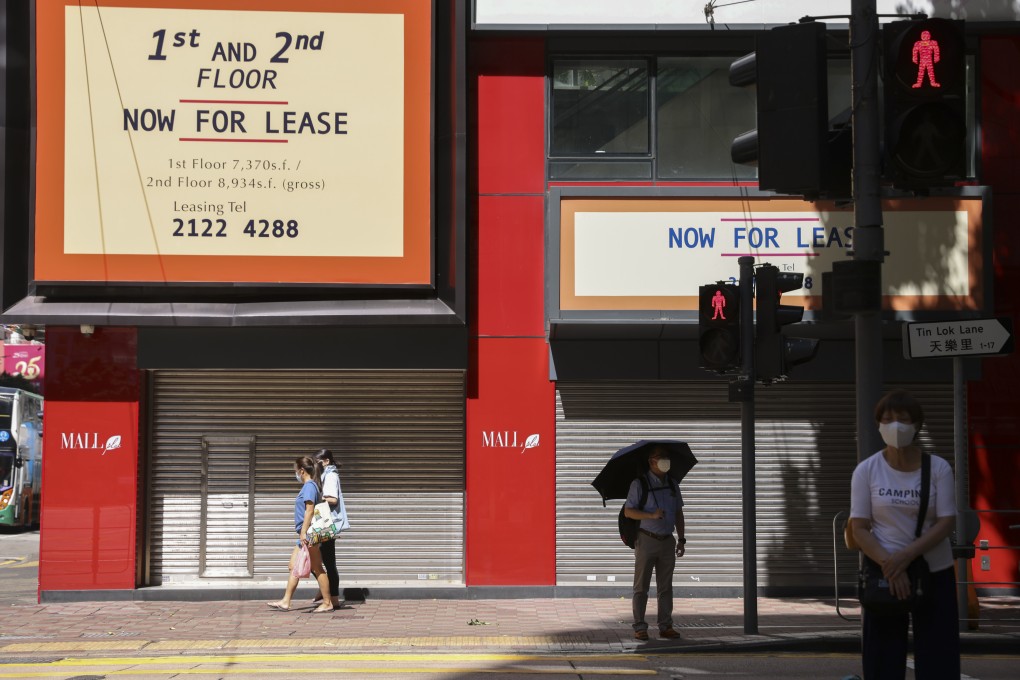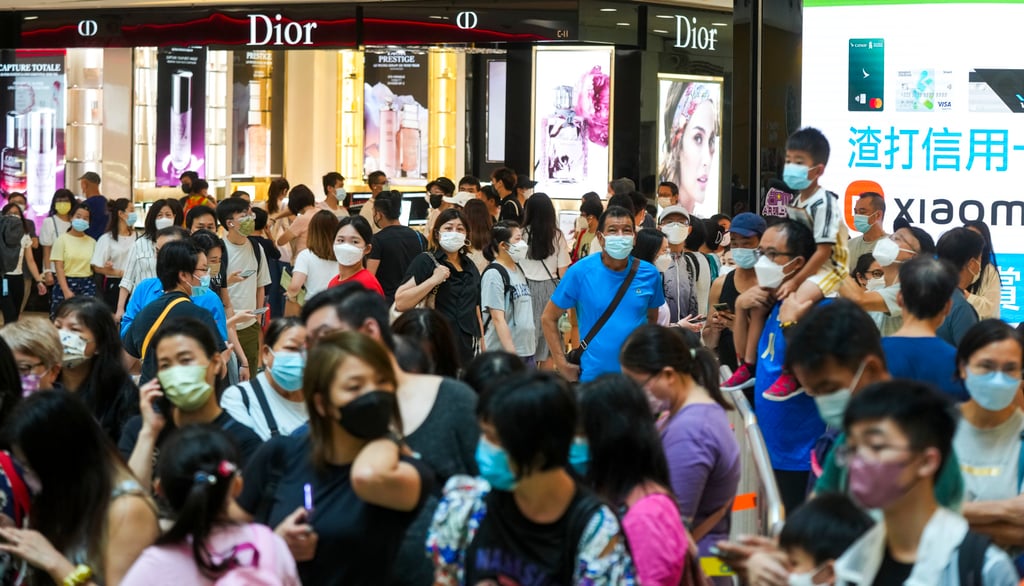Advertisement
Hong Kong retail landlords expect slow recovery even as travel restrictions ease and latest vouchers boost retail spending
- Market watchers do not expect an immediate impact from a reduction in quarantine requirements, though new round of vouchers should boost spending
- With rents at 1988 levels, tenants should extend agreements only if they are confident local customers can sustain operations, property experts say
Reading Time:3 minutes
Why you can trust SCMP
3

Hong Kong’s pandemic-battered retail market will not recover overnight despite the city easing travel restrictions, and tenants should extend their agreements only if they are confident local customers can sustain operations, property experts said.
“Rent will remain at the current level until we see the sector show major signs of recovery,” said Barrie Chan, senior director of retail at Savills.
Hong Kong’s rental index is currently 75.3 per cent lower than an all-time high reached in the third quarter of 2014, according to JLL. That puts rents at a level last seen in the second quarter of 1988.
Advertisement
Right now Hong Kong businesses are only getting revenue from local customers, and tenants need to be confident this is sustainable in the short term, Chan said.

Landlords of shopping malls and department stores are willing to make concessions to keep tenants in place by offering short-term leases and pop-up stores, according to Michael Cheng, mainland China and Hong Kong consumer markets leader at PwC Asia-Pacific.
Advertisement
Advertisement
Select Voice
Select Speed
1.00x